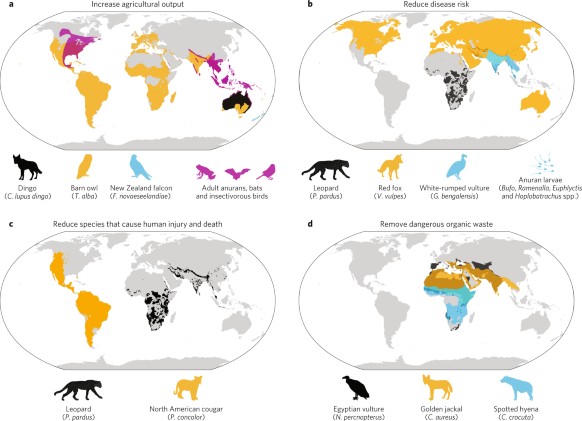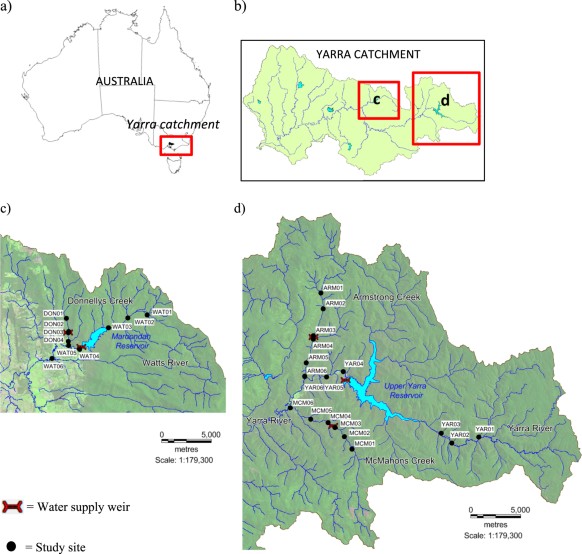
IUCN global
distribution of some species that are known to provide important
services to humans over some portion of their range.
Abstract: "Predators and scavengers are frequently persecuted for their negative
effects on property, livestock and human life. Research has shown that
these species play important regulatory roles in intact ecosystems
including regulating herbivore and mesopredator populations that in turn
affect floral, soil and hydrological systems. Yet predators and
scavengers receive surprisingly little recognition for their benefits to
humans in the landscapes they share. We review these benefits,
highlighting the most recent studies that have documented their positive
effects across a range of environments. Indeed, the benefits of
predators and scavengers can be far reaching, affecting human health and
well-being through disease mitigation, agricultural production and
waste-disposal services. As many predators and scavengers are in a state
of rapid decline, we argue that researchers must work in concert with
the media, managers and policymakers to highlight benefits of these
species and the need to ensure their long-term conservation.
Furthermore, instead of assessing the costs of predators and scavengers
only in economic terms, it is critical to recognize their beneficial
contributions to human health and well-being. Given the ever-expanding
human footprint, it is essential that we construct conservation
solutions that allow a wide variety of species to persist in shared
landscapes. Identifying, evaluating and communicating the benefits
provided by species that are often considered problem animals is an
important step for establishing tolerance in these shared spaces."
Read More: https://www.nature.com/articles/s41559-017-0421-2



